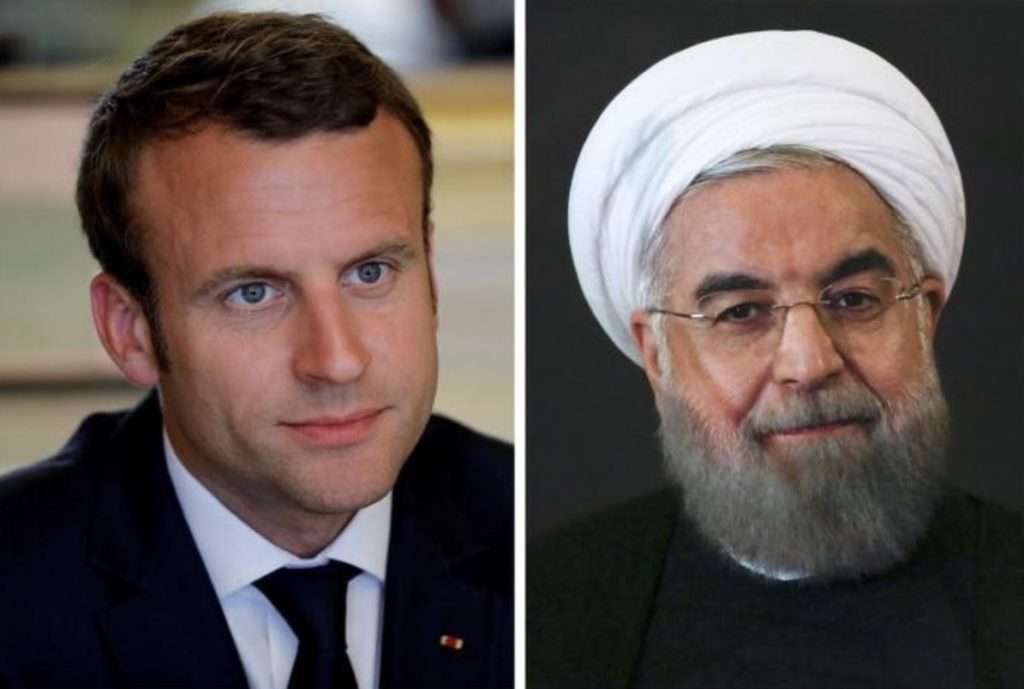France, Germany and the UK warn Iran of August sanctions

France, the UK, and Germany will work to restore sanctions against Iran by the end of August if no significant progress is made on a nuclear agreement, French Foreign Minister Jean‑Noël Barrot said on July 15th, according to The National.
“It’s a fact: Iran violated the obligations it took 10 years ago during negotiations on the Iranian nuclear (programme),” Barrot said prior to meeting with EU foreign ministers in Brussels.
“So France and its partners are justified in reapplying global embargoes on arms, banks and nuclear equipment that were lifted 10 years ago. Without a firm, tangible and verifiable commitment from Iran, we will do so by the end of August at the latest,” Barrot continued.
Barrot emphasised that inspectors from the UN’s nuclear watchdog, the International Atomic Energy Agency (IAEA), must be permitted to go back to Iran, and that a diplomatic initiative should begin to reach a negotiated resolution regarding Iran’s “nuclear, ballistic and destabilising activities”.
The French minister made these remarks following a discussion on Iran with his counterparts from the UK and Germany. French diplomatic sources stated: “They agreed on the need to maintain close co-ordination on the next steps, with decisions to be taken before the end of the summer.”
According to the terms outlined in a UN resolution endorsing the 2015 nuclear agreement, the deadline for the three nations to reinstate UN sanctions on Tehran is October 18th 2025.
On July 2nd, French President Emmanuel Macron discussed the future course of action regarding Iran’s nuclear programme with Russian President Vladimir Putin, marking their first talks since 2022.
The two leaders, held a two-hour call, which followed the US intervention in support of Israel’s aerial campaign against Iran, which included strikes on nuclear sites.
Macron has recently aligned with Washington’s stance that Iran should have zero enrichment, even for peaceful civilian use. During the call, Putin- an ally of Tehran- stressed that it was essential to respect Iran’s right to the peaceful production of nuclear energy. However, media reports later suggested that Putin also expressed support for a potential agreement that would prohibit Tehran from enriching uranium altogether.
Iran maintains that its nuclear programme is peaceful, while Israel and the United States contend that the country was only months away from being able to build a nuclear weapon- an assertion not publicly echoed by European nations.
In the aftermath of U.S. and Israeli military actions, Iran’s Parliament enacted legislation requiring that any inspections of its nuclear facilities by the IAEA receive approval from the Supreme National Security Council, the nation’s highest security authority.
Foreign Minister Abbas Araghchi stated that Iran’s engagement with the UN nuclear agency has not ceased, but would be in a different form. On July 12th, he cautioned that any attempt by the UK, France, and Germany to reinstate international sanctions via the snapback mechanism would “end Europe’s role” in Iran’s nuclear issue.
This came after Araghchi reaffirmed the country’s commitment to the nuclear Non-Proliferation Treaty (NPT) after Iran enacted a law suspending its cooperation with the IAEA.
Araghchi further stated that Iran would not accept any nuclear agreement that prohibits uranium enrichment and that it would only participate in discussions focused exclusively on its nuclear programme, not on military matters such as its missile systems. This stance directly conflicts with France’s preference for a wider agreement.
The National, Maghrebi.org
Want to chase the pulse of North Africa?
Subscribe to receive our FREE weekly PDF magazine












